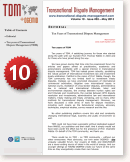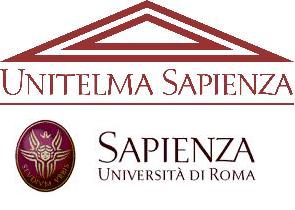This piece of news has been provided by Céline Camara and Polina Pavlova, research fellows at the Max Planck Institute Luxembourg.
The 5th Journal of Private International Law conference was hosted by the Universidad Autónoma de Madrid and the Universidad Complutense de Madrid on 12th-13th September 2013. The programme is available here.
The Editors of the Journal (Professors Jonathan Harris of King’s College, London and Paul Beaumont of Aberdeen) and the conference organisers (Professors Pedro de Miguel Asensio and Carmen Otero of UCM and Francisco Garcimartin and Elena Rodriguez of UAM) were successful in providing a comprehensive forum for the private international law community.
Around 80 speakers from all around the world – including young researchers and renowned scholars alike – presented their work. 15 different thematic panel sessions covered all relevant areas of private international law. In addition, a series of plenary sessions gave impetus to lively discussions.
As was to be expected, one of the hot topics of the conference was the Brussels I Recast. The abolition of exequatur, jurisdiction over Third State defendants, consumer protection and collective redress were, inter alia, extensively addressed.
Another significant part of the conference dealt with legal issues resulting from the increased mobility and new trends of modern society as well as new technology developments. For instance, several discussions tackled the PIL aspects of same sex marriage and online contracts.
The interplay between Private and Public International Law was a question underlying several research projects presented at the event.
The interaction between regional and global approaches offered an impetus to rethink principles of PIL as well as regulatory concepts.
The conference was closed by a presentation held by the Advocate General Pedro Cruz Villalón.
Aside from the legal insights provided in the sessions, the venue of the event together with the well-conceived social programme ensured that all participants greatly enjoyed their stay in Madrid.
We are looking forward to the next JPIL Conference which will take place in Cambridge in 2015.
 TDM has published its special anniversary issue. According to the Editorial by Mark Kantor, and especially relevant to readers of this site, “the TDM community has not limited itself to investment treaty disputes. Instead, we have promoted discussion of international commercial arbitration, litigation over international issues in national courts, mediation of cross-border disputes, administrative law in national and international tribunals, labor and environmental disputes, the overlap between human rights law and tribunals and investments, the overlap between WTO dispute resolution and investments, administrative law and international matters, treaty making and treaty unmaking, and so many other methods for transnational dispute management.” With articles from leading authorities on timely topics of regional and substantive interest, the anniversary issue is no different.
TDM has published its special anniversary issue. According to the Editorial by Mark Kantor, and especially relevant to readers of this site, “the TDM community has not limited itself to investment treaty disputes. Instead, we have promoted discussion of international commercial arbitration, litigation over international issues in national courts, mediation of cross-border disputes, administrative law in national and international tribunals, labor and environmental disputes, the overlap between human rights law and tribunals and investments, the overlap between WTO dispute resolution and investments, administrative law and international matters, treaty making and treaty unmaking, and so many other methods for transnational dispute management.” With articles from leading authorities on timely topics of regional and substantive interest, the anniversary issue is no different.


 Pippa Rogerson (University of Cambridge) has published the
Pippa Rogerson (University of Cambridge) has published the 